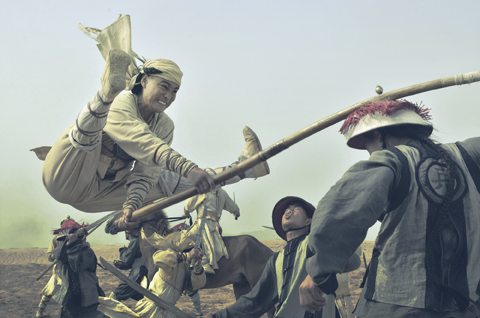
Lu Chan (Jayden Yuan) fights back (Variance Films)
In Tai Chi Zero, the “Zero” will at one point become a hero (I’m not making this up). We’re told, in a very, very odd flashback, that Lu Chan (Jayden Yuan) was born with a bump on his head, and when he was a boy and it got flicked by, say, bullies, he went belligerently berserk. He didn’t have a technique just yet, so he was taught to fight, and by the time he reached adulthood he became a kung fu master.
And yet he has not been taught “internal” kung fu (whatever that means), and is told he must go to Chen Village and learn it. In the village, no one wants to teach him. Lu Chan has to learn by watching other people fight. He’s a happy-go-luck puppy of a character who keeps forgetting what he’s being told: the big spot on his head is turning purple, and if it turns black… he dies.
The film, inspired by B-level kung fu flicks, nakedly advertises its sequel, which should be out next year. (I haven’t seen such a promotion since Back to the Future Part II included a teaser for Part III.) Based on the quasi-trailer, we will get much of the same: a kung fu semi-comedy that also wants to be a video game.
How is it a video game? Fung shoots the movie like Edgar Wright’s Scott Pilgrim vs. the World, with his fights full of fast cuts and dolly tracking shots. Fung even gives us a diagram of what the particular fighter will do to his/her opponent. The style changes radically from the black-and-white prologue explaining Lu Chan’s early years—shot mostly like a silent film, complete with title cards and a goofy piano score—to the video game mode, but there isn’t too much variety in how the fights are shot—except, unfortunately, when Fung goes for the Zack Snyder-style of slow-motion action jarringly inserted into the fast-pace visuals.
It’s also, to an extent, a steampunk Western, since Chen Village has its own conflict when one of its citizens returns home after years away with a new Westernized look (this is the 19th century by the way) and wants to put a railroad through the town. The train itself is a small marvel to look at, like a big ugly monster that huffs lots of smoke and steam and shoots out fire.
I mention the story only in passing since it’s not really the filmmaker’s concern, and it shouldn’t be yours, either. Fung’s strength is in small moments of comedy. Early on, he introduces almost all of the characters with their own freeze-frame and title card (“Angelababy as Chen Yunia”) with a listing of their previous credits. It’s funny until it’s done for characters who you won’t be able to remember, or for actors who are obscure outside of hardcore kung fu circles. Probably the movie’s highlight is Tony Leung Ka-fai, who you might remember from Wong Kar-wai’s films, as a guy who first seems to be just an old man living on the outskirts of town, but who turns out to be THE Chen kung fu master. Seeing him in this role played totally straight is a pleasure.
Even if one turns off their super-analytical-critical faculties, the movie’s hard to get into because, as with most kung fu movies, the story’s paper thin. And yet as a full-blooded action movie (rated PG-13 by the way, not super-bloody so for kids it should be a gas) it’s so all over the place, but not in a way of a guilty pleasure. With all of its frenetic action, you just want to tell the film to “slow down.”

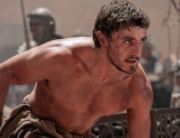
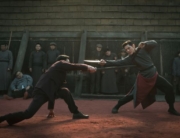
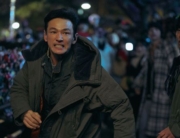
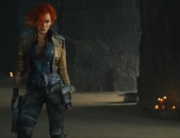

Leave A Comment